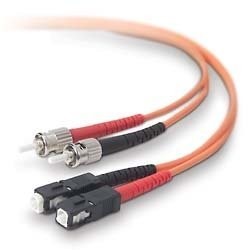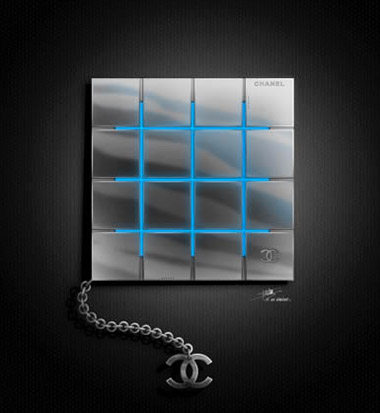Tag: Fibre Optic
BT announce new high-speed Infinity broadband package
BT have announced the launch of Infinity, the first consumer broadband package to use their new next-generation access (NGA) fibre-optic network. For £19.99 a month, customers can get download speeds of 40Mbps and upload speeds of 2 Mbps. Data is…
Britain's broadband 'not fit for the future', but no surprises there
There seemed to be a real kerfuffle on the news this morning caused by a Cisco-sponsored survey which showed that UK finished 25th out of 66th in the broadband quality league table, lower that is than Bulgaria and Latvia. The amazing thing is that anyone was really surprised by our relatively lowly position.
As anyone who has been to South Korea and Japan – the two countries that top the table – can tell you they are simply light years ahead of us in terms of broadband penetration, speeds and quality. Indeed the South Korean government recently promised universal speeds of up to 1Gigabit per second by 2012 while we struggle to meet the global average speed of 4.75 Megabits per second (Ofcom’s April research revealed that our average broadband download speed stands at 4.1Mbps.)
Now I haven’t been to Bulgaria and Latvia so I can’t vouch for their broadband (though one wag commented on the Daily Mail site of course that the roads were much better in Bulgaria than the UK). But again it doesn’t really surprise me.
So what’s the problem? Why does the UK lag behind seemingly less developed countries when it comes to high speed delivery of internet services. The reason is largely because of lack of fibre-optic cable which is the only way of delivering the high speeds necessary for superfast broadband (currently we rely mostly on old copper telephone wire via ADSL networks). This is because for years there were dozens of tin-pot little cable companies with no money who spent more time squabbling with each other than actually digging up the roads to lay high speed cable. Even today there are large parts of densely populated neighbourhoods in London which still don’t have fibre-optic cable.
The good news though is that could be about to change, albeit slowly, with Virgin now the only cable company on the block. It is rolling out a 50Mbps service while 24Mbps ADSL2+ services via BT and others are becoming more widespread. However, it seems there is still some way to go before we reach the average download speed of 11.25Mbps that’s needed to handle future applications such as High Definition Video.
Until then Britain will have to be content with the survey’s label of ‘Meeting Needs for Today’, the broadband equivalent of ‘must try harder’.
The internet is saved! Ofcom calling for investment in nationwide fibre optic network
Telecoms regulator, Ofcom, is making a fresh push to secure the future of the UK’s broadband infrastructure. Chief Exec, Ed Richards, told the Intellect conference in London “Ofcom favours a regulatory environment for the next generation of networks and access that both allows and encourages operators to make risky investments, to innovate for the benefit of consumers and, if the risks pay off, for the benefit of their shareholders too.”
UK Government to investigate path to next generation broadband
 Think your pitifully slow “
Think your pitifully slow “nowhere near up to eight meg” broadband is a joke? You may be vaguely encouraged that the Government is starting to look at how we move Britain into truly fast, “next generation” broadband.
The Business and Competitiveness Minister, Shriti Vadera, launched the independent review on Friday. It will look at the importance of 100Mbps+ broadband to British businesses, and what the potential barriers are to achieving those kind of speeds.
“The way we will do business, access many government services, as well as information and entertainment, will change beyond recognition over our lifetime. New technologies will push the boundaries of today’s communications infrastructure,” she said. “We need to prepare the way for the UK to adopt groundbreaking new technologies to ensure that we do not get left behind – competitively or technologically.”
Guess the function of the thing!
Is it a wall clock? An interactive work of art? A barometer of some sort? The new Rubik puzzle that’s going to be the next big thing for Christmas of 2008? Or is it an ancient alien artefact just dug out of a hole on the surface of Mars by the Discovery rover?

INTERNET DOWN! INTERNET DOWN! Boredom reaches CRISIS LEVEL in India and Middle East as cable damage downs 70% of web
 Following damage to an undersea cable, large chunks of India and the Middle East were left without internet access yesterday.
Following damage to an undersea cable, large chunks of India and the Middle East were left without internet access yesterday.
Imagine that happening here. Just imagine. Now stop imagining it, or you’ll end up having nightmares about being forced to start spending the evenings watching TV and talking to your partner again.
The cabling concerned is officially called SEA-ME-WE 4, which is a 17,400 mile long fibre-optic…
USB version 3 to offer 10x speed increase over USB 2.0
Intel is working with a number of other developers to introduce the next version of the Universal Serial Bus interface technology. USB 3.0 will offer at least ten times the speed of USB 2.0, by virtue of an additional fibre-optic…














